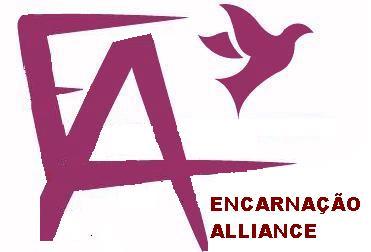Introducing a Conversation on Building New Faith Communities
The Nature of the Conversation
A story of churchplanting in Manila "Discipling Movements" (ppt).
The Conversationalists?
Introducing Viv Grigg (or trainer to insert their background)
- Introduce Students.
Where will the conversation lead us?
Course Outline (TUL530 Syllabus)
Assignments
A model of a Project Proposal by Katie Gard
Go to Course Outcomes
1. Intellectual
This course will provide a context for theological reflection and integration.
You will interact with a holistic kingdom theology that will help you with Biblical responses to developing movements of disciples in the midst of poverty. These will be based on reflections from Theology, Urban Studies and Practical Ministry.
a. For those in the West - This course will enable a paradigm shift from middle class Western Evangelical theology of the church to biblical theologies that enable appropriate behaviour in poverty settings including an understanding of practical progressions of developing movements of disciples among the urban poor.
b. For pastors with experience in the slums - this course will enable integration of their existing experiences and theologies into a comprehensive theology and practice of creating movements of disciples among the urban poor, for the subsequent decades of ministry.
c. For young workers in the slums - This course will provide a theoretical framework in theology, urban studies and mission practice for effective development of movements of disciples among the urban poor over the subsequent decade.
d. For those planning to work in authoritatiran Muslim contexts, there are particular constraints as to the nature of Christian witness and how believers can gather. The emphasis on solidarity is stronger, the practical dynamics of growth are a lot less integrated. Nevertheless the principles remain at each phase to be worked out in somewhat different structures. in less authoriatarian contexts, greater freedoms may lead to more public structuring of community relationships.
2. Pastoral
a. Provide a peer-group context for healing of emotions of damaged workers as experiences are examined in a wider framework.
b. Create an understanding of pastoral support structures needed for ministry among the urban poor.
3. Strategic
a. Place local slum ministry in the context of a global strategic perspective.
b. Clarify theologies that underlie strategic decision-making at the grassroots.
4. Practice of Ministry
This will result in practical outcomes, as theology is a study of an active God of history. One of them is working in teams to plan training for others pioneering new faith communities, beginning with the material on the grassroots Churchplanters CD.
5. Group Involvement
This is a primarily story-based course - both stories on video and written and participants own stories. You will gather the story of one churchplanter
You will work in groups to develop training process within local organic churches and integrate them into a grassroots training website, beginning with the grassroots training topics and Paradigm shifts for grassroots churchplanters.
The Conversation Structure
- Course Syllabus
- Course Description
- Course Structure
-
Course Dates
-
Site Visits
You will arrange a visit to stay overnight with a slum family and attnd a clum church service on the weekend prior to the delivery of the lectures. Students are expected to think about the site visit and where appropriate ask penetrating questions about the interactions during the visit. Persons should attempt to collect data that will enable them to form an opinion about the factors listed.
The group will travel to the sites together and the students should use this opportunity for helpful group discussion about the effectiveness of the urban mission among the poor. The formation of group opinions is an important factor in team ministry and this is a quality and skill that all urban mission candidates should foster and value.
Making notes, keeping a log and collecting written information and data from each site visited will assist you in having accurate information about each site. Make sure you get the telephone numbers of key people so you can call back later for any further information you may need. Be friendly and warm and if permitted speak to the people in the community at each site. From a few words you may well be able to sense the commitment of the workers to the call of the ministry, assess worker morale and evaluate the level of mission and vision each worker has about the ministry at their site. It is always good to observe and respect the welcome procedures at each site and pray with the host at the end of the visit and ask God’s blessing on their ministry. A class/team thankyou card is also a great way to show your appreciation.
Class Admin
a. Someone to handle payment for materials
b. Coordinating books
c. Coffee maker
d. DevotionalsAfter reading the intro. assignment you will be assigned times for presentations to the class of areas of expertise each one has.
-
Readings that Feed the Conversation
-
The course utilises Companion to the Poor and Cry of the Urban Poor as texts. These are currently the only books available on forming the church among the urban poor.
After reading the storytelling assignment we will assign times for presentations to the class from your areas of expertise.
-
- Never the Same Again
- Kagawa of Japan
- City of Contrasts
- References
- Course Readings on the CD
- Sample Reading Log

